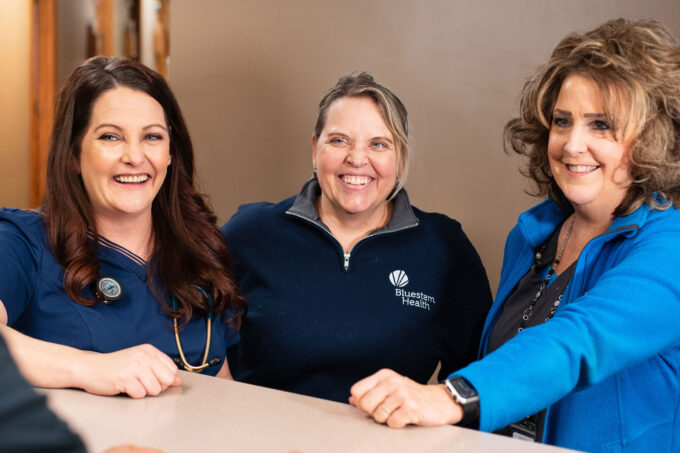- Patient Support Services
- April 5, 2022
Could You Be At Risk for Diabetes?
Diabetes affects how your body turns food into energy. Our bodies are designed to break down the food we eat into sugar, also known as glucose, which is then released into the bloodstream.
9 min read

Diabetes is a chronic health condition that affects about 34.2 million Americans, or approximately 10.5 percent of the U.S. population, according to the National Institute of Diabetes and Digestive and Kidney Diseases. Yet, many people aren’t aware that they could be living with prediabetes or type 2 diabetes.
- Nearly 1 in 5 adults living with diabetes don’t know they have the disease
- Approximately 88 million people aged 18 years or older have prediabetes
- More than 84 percent of people living with prediabetes don’t know they have it
- About 50 percent of women with gestational diabetes go on to develop type 2 diabetes
Understanding the signs and symptoms of diabetes and the risk factors for diabetes is essential. Our providers at Bluestem Health can help you take the appropriate steps to prevent or manage diabetes.
What is Diabetes?
Diabetes affects how your body turns food into energy. Our bodies are designed to break down the food we eat into sugar, also known as glucose, which is then released into the bloodstream. When blood sugar goes up, the pancreas is signaled to release insulin. Insulin is a hormone that acts like a key into your body’s cells allowing glucose to enter for use as energy.
One of two things happen if you have diabetes. Either your body does not make enough insulin (type 1 diabetes) or it can’t use the insulin it does make as well as it should (type 2 diabetes). When there isn’t enough insulin or when cells stop responding to insulin, known as insulin resistance, too much blood sugar stays in the bloodstream. Over time, too much blood sugar in the bloodstream can cause serious health problems.
What are Risk Factors for Diabetes?
There are several risk factors that can increase your risk for type 2 diabetes.
- A family history of diabetes
- 45 years or older
- Overweight
- Not physically active
What are Signs, Symptoms, and Treatment Options?
Some common warning signs for type 1 diabetes that should prompt an immediate appointment with your doctor include:
- Unexplained loss of weight
- Frequent urination
- Extreme thirst
- Fatigue and weakness
- Dry mouth
- Increased appetite
- Fruity, sweet breath may be a sign of high ketone levels in the blood
Symptoms may and can develop quickly.
An A1C test, which measures the average amount of glucose in a person’s bloodstream over the past 90 days as a percentage, is a secondary test that can also be used to diagnose type 1 diabetes. An A1C over 6.5% indicates diabetes.
What You Can Do?
There are a number of things you can do to reduce your chances of developing type 2 diabetes.
- Lose weight, 5 to 7 percent of your starting weight
- Be active at least 30 minutes of physical activity 5 days a week
- Eat healthy foods and smaller portions when possible
Work with your healthcare provider to help you develop a plan to reduce your risk.
Bluestem Health Diabetes Team
At Bluestem Health Piedmont Clinic, our providers are experienced in treating diabetes. They work closely with our certified diabetes care and education specialists – Joni and Molly – to help patients with diabetes control the disease through exercise, nutrition, medications, and checking blood sugars.
To schedule an appointment with a Bluestem Health Piedmont Clinic provider, call (402) 480-7380. If you are a current patient, ask your provider about meeting with a diabetes educator.
Continue reading

- Family Medicine
- February 18, 2025
Managing Influenza and Other Winter Illnesses
Michael Israel, MD, at Bluestem Health, shares the importance and benefits of timely treatment of winter illnesses for families.

- Dental
- February 3, 2025
Healthy Smiles Start Here: Bluestem Health Dental Services
Our professional team is here to provide quality dental care from routine checkups and cleanings to dental emergencies.

- Admin
- February 3, 2025
Join Our Nursing Team & Shape the Future of Healthcare
Utilize your nursing skills, find opportunities for growth, and align your future direction of nursing when you join our nursing team.
